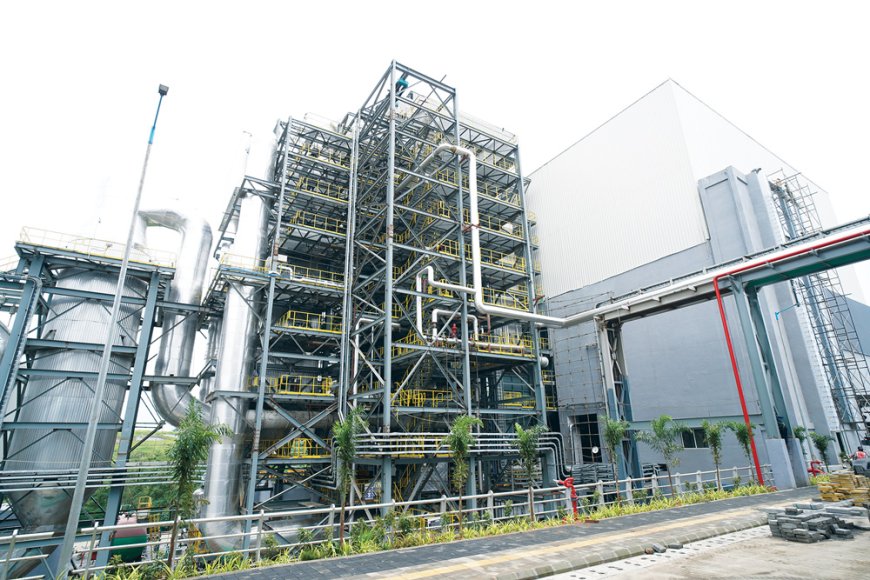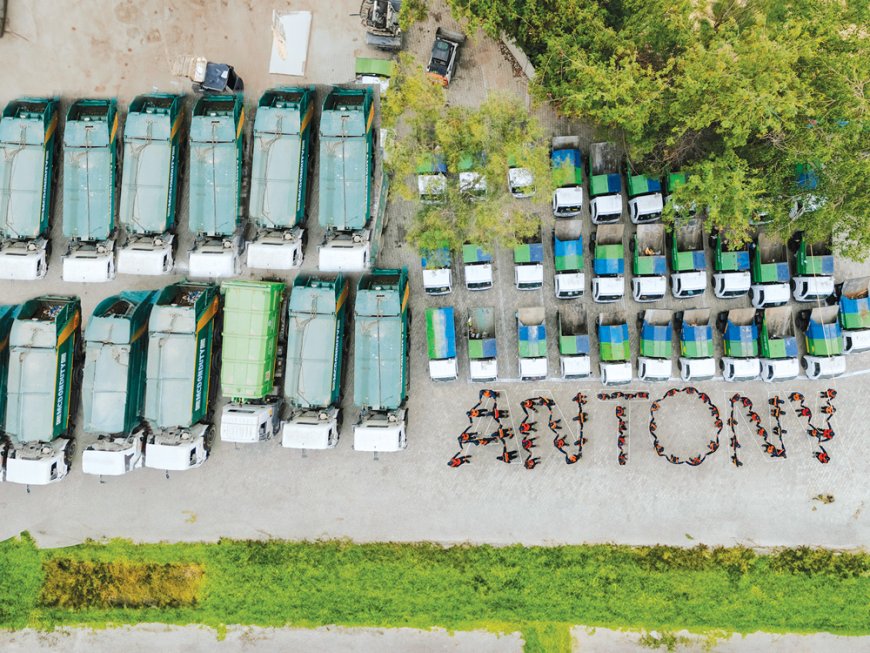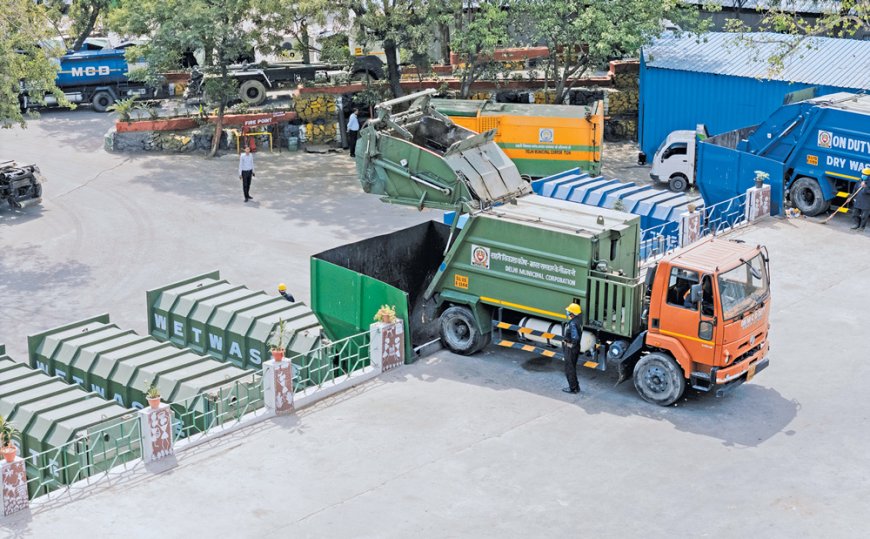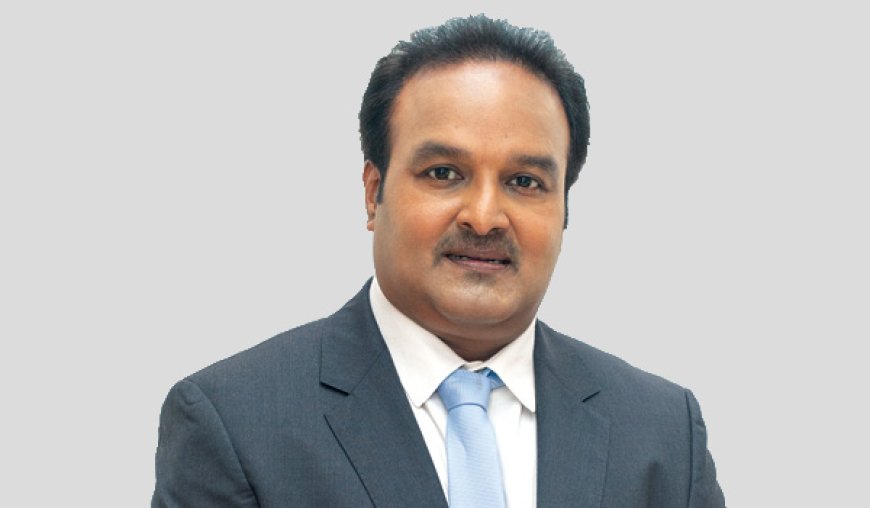Jose Jacob Kallarakal
Chairman & MD, Antony Waste Handling Cell Ltd
How do you view the importance of solid waste management in the emerging scenario?
The solid waste management business addresses issues of environmental protection, climate change, public health, economic growth, and social well-being.
With increasing urbanization and change in lifestyle, governments and people are increasingly becoming sensitive to issues like climate change, soil/water/air pollution. State programmes like SBM and ranking of cities, municipalities are motivated to do better than before. Solid waste management is at the core of these initiatives where emphasis is on adopting circular economy principles, and promoting sustainable consumption and disposal practices to reduce burden on saturated landfill sites.
How are solid waste management activities progressing in the country? What are the bottlenecks in waste collection, transport, treatment and disposal?
India's growing population and industrial activities have significantly boosted its waste management market. The country generates large amounts of both hazardous and non-hazardous waste and is now shifting towards more efficient and sustainable waste management practices. As one of the top 10 countries in municipal solid waste production, India generates over 62 million tonnes of waste annually, and this figure is projected to reach 165 million tonnes by FY2030. The waste management market is expected to be worth around USD 15 billion by FY2025.
Efforts like the Swachh Bharat initiative have promoted waste collection and management on a large scale, offering growth opportunities for innovative start-ups, particularly those focusing on electronic and biomedical waste. Environmental awareness and rapid industrialisation are driving the demand for more efficient waste management solutions. Solid waste processing in India has seen a remarkable increase from 17% in FY2014 to over 77% in FY2024.
However, many challenges remain in waste management, such as infrastructure issues, rapidly increasing waste, poor segregation techniques, low public awareness, and limited resources and funding.

How efficient are the municipal solid waste management operations in the country? What are the major challenges?
Managing municipal solid waste in India is a complex and expensive task for local governments, but it is crucial for the health, environment, and quality of life of the population. The issue has become severe due to the vast amounts of waste generated daily. Local authorities handle daily operations, including waste collection from households and businesses, transportation to treatment facilities or landfills, and the operation of these facilities. The efficiency of these operations varies across regions, with some areas achieving higher levels of waste processing, while others struggle with inadequate infrastructure and resources amongst other.
Overall, despite significant progress in improving the efficiency of municipal solid waste management operations in India, continuous efforts are necessary to address the remaining challenges and ensure sustainable and effective waste management practices nationwide.
Following are the major challenges:
Infrastructure: Many places do not have the basic infrastructure required for proper waste collection and disposal. Collection trucks, recycling facilities and landfills that meet environmental standards are unavailable in several regions. A lack of proper infrastructure leads to waste being dumped illegally, causing pollution and potential health problems. Building and maintaining waste management infrastructure is expensive, with many municipalities not having the budget for it. This problem is especially prevalent in developing countries and in areas with low population density.
Rapidly growing waste: A burgeoning population, rapid urbanisation and increased consumption, have increased waste generation, putting pressure on existing waste management infrastructure. The unavailability of lands for landfills has facilitated the need to seek alternative waste management solutions.
Inadequate segregation techniques: The inability to segregate different types of waste at the source or during collection, renders materials unfit for recycling. When recyclable materials, such as plastics, paper, glass and metals are mixed with organic waste or hazardous materials, they become contaminated, decreasing the quality of recycled products and even compromising the recycling process itself. Proper segregation is essential for recovering valuable resources from waste streams.
Lack of public awareness and citizen engagement: There is a need for greater public awareness and citizen engagement in waste management practices. Many residents are unaware of the importance of waste segregation, recycling, and composting. Lack of community participation hampers efforts to implement sustainable waste management solutions. This requires broad-based IEC campaigns for educating the public at large.
Resource constraints and funding issues: Municipalities often face resource constraints and funding issues, limiting their ability to invest in modern waste management infrastructure and technology. Lack of financial resources hinders the development of sustainable waste management systems.
What are the solutions offered by the company in waste management?
With expertise spanning over two decades, we stand as one of the leading companies in the Indian Municipal Solid Waste (MSW) management sector, providing comprehensive solid waste management services to various municipal corporations.
Our state-of-the-art technologies and equipment form the bedrock that boosts us derive efficiencies and simplifies the complex process of waste management. Our expertise in landfill development and management allows us to expand our operations and address the nation’s environmental issues. We are committed to encouraging sustainable waste management practices, steadily contributing to the Government’s Swachh Bharat Mission. Aligned with our sustainability ambitions, our robust processes reduce the amount of waste that ends up in landfills. While prioritising responsible waste management, recycling and composting.

Our major solutions include:
Municipal waste collection and transportation: Efficiently manage and transport municipal solid waste from residential, commercial and industrial areas, ensuring clean and hygienic urban environments.
Mechanised and non-mechanised sweeping: Provide comprehensive street sweeping services using both mechanised equipment and manual labour to maintain immaculate public spaces.
Waste processing & treatment: Implement advanced waste segregation, sorting and treatment techniques to recover valuable resources and reduce landfill dependency.
Waste to energy: Transform organic waste into renewable energy, producing biogas and electricity and reducing greenhouse gas emissions.
Construction and demolition waste management: Offer sophisticated solutions for the efficient handling, segregation and recycling of construction and demolition waste, minimising environmental impact.
Comprehensive hygiene solutions for all spaces: Click2Clean includes deep cleaning, and pest control services for factories, corporate offices and residential units.
We also have plans to expand into comprehensive maintenance solutions, ensuring the highest standards of hygiene and cleanliness.
How will awareness play an important role in effective waste management?
Awareness is a cornerstone in the quest for effective waste management. Educating the public about the importance of waste segregation, recycling, and the environmental consequences of improper waste disposal can significantly enhance participation in sustainable practices. When individuals are informed about how their actions impact the environment, they are more likely to adopt responsible waste disposal habits.
Awareness campaigns can also galvanize community support, encouraging local initiatives and collaborations that address waste management challenges. Through workshops, seminars, and media outreach, we can build a culture of environmental stewardship that extends beyond mere compliance to proactive engagement.
Furthermore, raising awareness among policymakers and industry stakeholders is crucial. It fosters the development and implementation of innovative waste management policies and technologies, ensuring that waste management solutions are both effective and sustainable. By highlighting the economic and environmental benefits of sustainable waste practices, we can drive investment and commitment from all sectors, creating a synergistic approach to waste management.

What is your vision on solid waste management as an opportunity rather than a challenge?
The solid waste industry is going through a major paradigm shift. Efficient disposal of solid waste used to be seen as an unavoidable problem. However, going forward, successful commercialisation of processing technologies especially WTE and BioCNG have opened the space of alternative/green/clean energy. Pilot initiatives to produce green hydrogen are also work-in-progress. Cement companies have already successfully adopted MSW/industrial waste-based RDF as AFR substituting coal.
Organised players (both technology and financial investors) too have entered the recycling space - tyres, vehicles, ferrous & non-ferrous metals, e-waste, etc opening new segments for waste management players.
EPR is another dimension which is gaining traction because of regulatory changes and increased awareness, adding another potential revenue stream for waste management companies.
All these are disrupting the waste management sector opening up opportunities for value-addition and building of scalable business.











